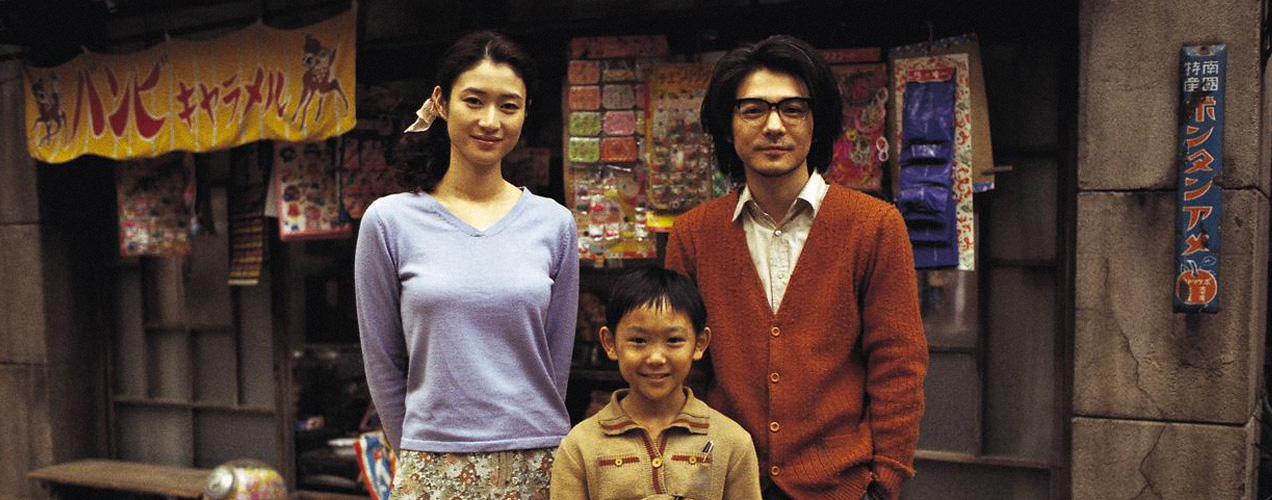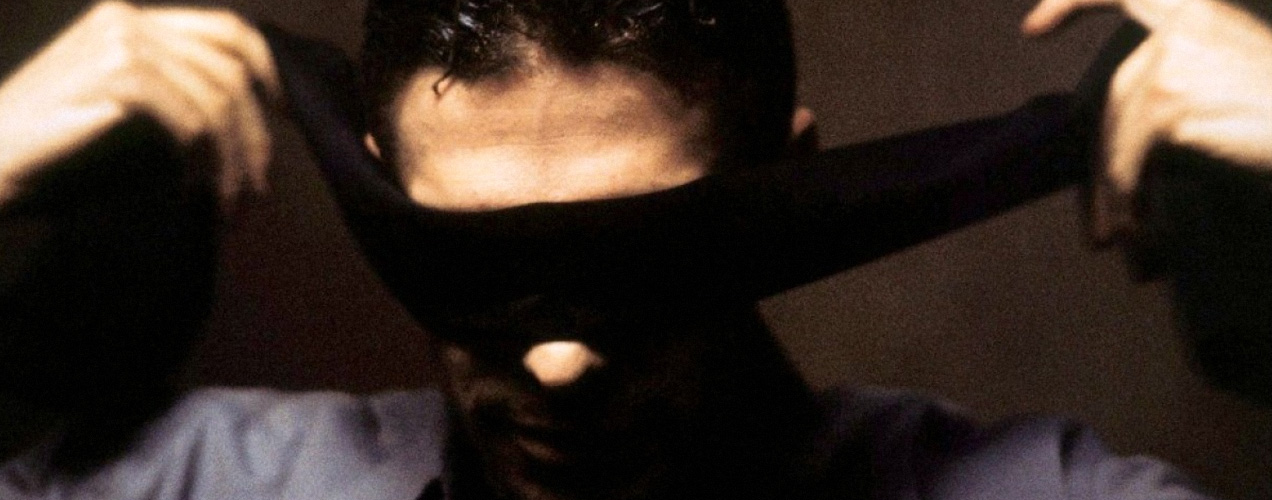2007 / Quentin Tarantino > In Pulp Fiction, Tarantino’s dialogue was fresh and exciting, but more importantly, it led to some level of character development that helped us understand the chaotic world within. In Death Proof, however, he engorges himself in dialogue that does little but waste time. Some may find it clever, but mostly it comes off pretentious and unnecessary. Thankfully, his skill in creating suspenseful action comes through gloriously in a couple of sequences that essentially justify the whole film. It’s no wonder that this was cut and packaged together with Planet Terror in North American theatres: The meat here, while thin, is still quite juicy.

Michael Clayton
2007 / Tony Gilroy > Michael Clayton is easy to like: Other than its somewhat long running-time and debatable ending, Gilroy’s directorial debut is void of any crass errors. George Clooney puts forth another intelligent performance that keeps him atop the top tier of Hollywood actors, but Tom Wilkinson ends up outshining him in a part that ought to get him an Oscar nomination at the very least. With its issues of corporate negligence and capitalist morality, the film is contemporary yet fresh. Its approach is akin to a lighter version of The Insider that’s better fit for the masses—there’s just enough action and craziness within to keep it riveting to those without an attention span. This all works well, but what trips the complete product is that it’s just too well packaged by the time the credits roll. But while there’s not much to hold onto past the two hours of celluloid, it must be said that this is one of the finest efforts major Hollywood has put forth in quite a while.

Always: Sunset on Third Street
 2005 / Takashi Yamazaki > Always may have been dominant in winning 12 of the 13 major Japanese Academy Awards in 2005, but its overly sentimental tone will hold it back from being a true classic. Set in the feel-good days of post-war Japan, the film’s depiction of family life in Tokyo is charming and full of heart, but the script’s overbearing emotion tends to undermine the sublime potential the characters themselves hold. Combined with the acting (which may be the strongest suit of the film and deserving of all its awards), Always ingeniously suckers you into tearjerker moments even if you could smell the set up a mile away—pretty impressive for a sterile, heavy-handed script.
2005 / Takashi Yamazaki > Always may have been dominant in winning 12 of the 13 major Japanese Academy Awards in 2005, but its overly sentimental tone will hold it back from being a true classic. Set in the feel-good days of post-war Japan, the film’s depiction of family life in Tokyo is charming and full of heart, but the script’s overbearing emotion tends to undermine the sublime potential the characters themselves hold. Combined with the acting (which may be the strongest suit of the film and deserving of all its awards), Always ingeniously suckers you into tearjerker moments even if you could smell the set up a mile away—pretty impressive for a sterile, heavy-handed script.

Secret Sunshine
2007 / Lee Chang-dong > Not sure if being Korea’s Minister of Culture and Tourism has somehow taken the edge off of Lee, but Secret Sunshine is a meandering disappointment that fails to take advantage of Jeon Do-yeon’s Best Actress-winning performance at Cannes. It is, in many ways, the kind of film that I absolutely abhor: One that presents problems but doesn’t offer many plausible solutions.
Human perseverance is always a fantastic topic (as we’ve seen Frank Darabont make a career out of it), but here the theme is stretched thin with hope nowhere in sight. In Oasis and Peppermint Candy, there was a certain logic to the pain that kept our attention afloat, our minds open and our hearts beating—and then we were rewarded with brave stories of the human condition. But Secret Sunshine lacks such humanity for us to care. Even with Lee’s objective incorporation of Christianity as a method of redemption, the protagonist’s inherent weakness makes her continuously unlikable, unbearable and, subsequently, leaves the film (and the viewer) without a point to rally around.

Eastern Promises
2007 / David Cronenberg > If there’s one thing that Cronenberg’s always done and deserves the most praise for, it’s the respect and intelligence with which he treats his audience. Hints are dropped, arcs are drawn but most of the dots are ultimately connected by the viewer. More often than not, this technique works wonders (e.g., Crash and eXistenZ). In Eastern Promises, this technique is further refined to the point where it actually backfires a little: Considering the strength of Viggo Mortensen’s character and the underlying tension/mystery that develops throughout, the finale is anticlimactic and disappointingly flaccid. The credits brought forth no emotions in me, a fact I found disheartening after 100 minutes of stellar filmmaking. In The History of Violence, there was an emotional purge at the end that left me at peace, but here that was absent. It’s simply too clever, and I can only wish that he had added a few more minutes to extrapolate the ongoings—not for the purposes of holding my hand, but in order to find a foundation to rest the violence and stereotypes by which the film operates.

The Royal Tenenbaums
2001 / Wes Anderson > The Royal Tenenbaums is ridiculous yet tactful, endearing when necessary and endlessly cathartic. It spends some time intriguingly setting up the familial landscape before falling back to let the action commence. It’s not immediately apparent that there’s anything here beyond Anderson’s peculiar directing methods until he blitzkriegs into the last third of the film. One scene after another crescendos—without pomp—into a collusive, heartwarming and/or heartbreaking whole that delivers the knockout punch. A stellar cast and spotless performances, a concise and elegant screenplay and pitch perfect cinematography contribute to a sly and wry final product that supersedes its components into the annals of film history.

Tell No One
2006 / Guillaume Canet > Gripping from the get go, the manner in which Tell No One unravels is both exhausting and exciting. Canet’s complex plotline is a gem that’s further enhanced by a simply terrific performance from Francois Cluzet, stunning, ambient cinematography and the inclusion of sporadic English music that adds to the mood while seamlessly fitting into the French setting. In short, it remains the type of murder mystery/thriller that we’ve seen again and again, but the veil on it is so thick with heart and intensity that we forget about past experiences and get sucked in without fail.

Intacto
2001 / Juan Carlos Fresnadillo > While luck transference is an interesting premise and the execution is sharp and solid, I found it hard to get over the film’s conclusion. Filled with Hollywood-style simplification, the ending spirals downward into something sentimental and unsatisfying—so very disappointing after Intacto showed such great promise and freshness with its darkly calculated, brooding style/mood.

Sexy Beast
2000 / Jonathan Glazer > Sexy Beast is a British gangster drama that’s three-quarters a character study and one-quarter the anatomy of a heist. In this separation is its uniqueness, with the verbal cuts of Ben Kingsley’s neurotic Don Logan running deep into the viewer’s mind as its best attribute. The overall dialogue is as crisp as it is biting, and music video director Glazer’s first feature film parlays quite a bit of his past vocation’s skillset with its quick cuts and rich colors. Pacing is far from conventional and somewhat uneven, and this may irk some while making others happy. In its own way, however, the film succeeds in being an exercise in realistic voyeurism while keeping the aura somewhat fantastical.

Superbad
2007 / Greg Mottola > Superbad is a lot of fun but, unlike the subtle brilliance that’s persisted in previous Mottola/Rogen works, childish jokes make up a bulk of its content. It straddles an awkward middle ground where it’s neither intelligent nor stupid, and while that might work for some, I found it hard to position in my list of adolescent comedies. Cera’s fine—his work on Arrested Development suits him better, but this is by no means a stretch. There are moments that are nice and cuddly yet not cheesy, which is a pleasant surprise. But ultimately, the storyline fails to stand out—as the “get laid before high school ends” plotline is anything but uncommon—and the afterglow is made less memorable by the fleeting nature of its juvenile jokes.

